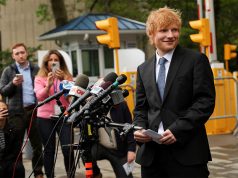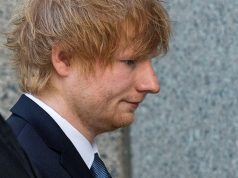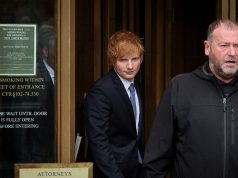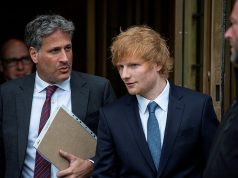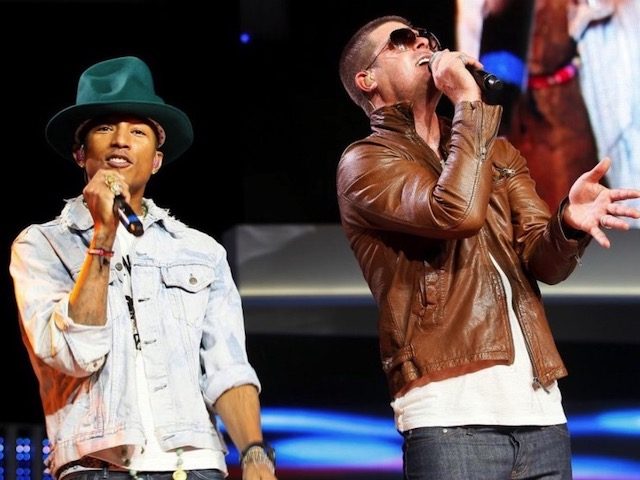
A federal appeals court on Wednesday upheld a $5.3 million judgment against Robin Thicke and Pharrell Williams for copying a Marvin Gaye song to create their 2013 smash “Blurred Lines.”
By a 2-1 vote, the 9th U.S. Circuit Court of Appeals said Gaye’s 1977 song “Got to Give It Up” deserved “broad” copyright protection, and the March 2015 jury verdict in favor of Gaye’s three children could stand because there was “not an absolute absence of evidence” of similarity between the two songs.
Circuit Judge Milan Smith also upheld an award of 50 percent of future royalties from “Blurred Lines” to the Gayes. He restored the jury finding that the Interscope record label, part of Vivendi SA, and Clifford Harris, the rapper known as T.I. who added a verse to “Blurred Lines,” should not be liable.
Jurors had awarded the Gayes $7.4 million, but U.S. District Judge John Kronstadt reduced the sum to $5.3 million, while adding royalties. Kronstadt also said T.I. and Interscope should be liable, but the appeals court disagreed.
The “Blurred Lines” case has transfixed the music industry, prompting debate over the line between plagiarism and honoring works by popular artists like Gaye, whose songs also include “I Heard It Through the Grapevine” and “What’s Going On.” Gaye was fatally shot by his father in 1984 at age 44.
Wednesday’s decision prompted a strong dissent from Circuit Judge Jacqueline Nguyen, who said the decision let the Gayes “accomplish what no one has before: copyright a musical style,” and expanded the potential for further copyright litigation.
“That is the consequence of the majority’s uncritical deference to music experts,” she wrote.
Howard King, a lawyer for Thicke and Williams, said the dissent “enhances the prospects” his clients may prevail in an appeal. “These are two entirely different songs,” he said.
“We are thrilled,” Richard Busch, the Gayes’ lawyer, said in an interview. “The decision protects songwriters, and encourages new songwriters to create original works themselves.”
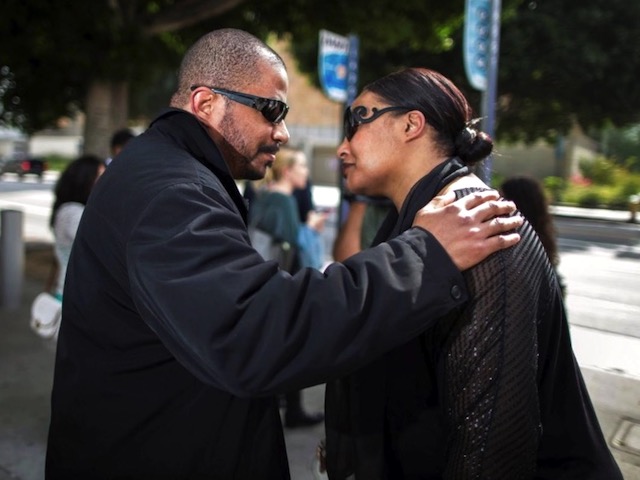
Two of Gaye’s children, Frankie and Nona, called the decision “a victory for the rights of all musicians.”
Williams, whose songs also include “Happy,” admitted in court to being a Gaye fan since childhood but said “Blurred Lines” and “Got to Give it Up” were similar in genre only.
Thicke has in interviews acknowledged drawing on Gaye’s song but maintained in sworn statements that he exaggerated his contribution to “Blurred Lines.”
Song theft lawsuits have proliferated in recent years.
This month, for example, Miley Cyrus was accused of stealing her 2013 hit “We Can’t Stop” from a 1988 work by a Jamaican songwriter.
Some artists like Ed Sheeran have settled, while, in contrast, Led Zeppelin persuaded a federal jury in June 2016 it did not steal the opening guitar riff to “Stairway to Heaven.”
The case is Williams et al v Gaye et al, 9th U.S. Circuit Court of Appeals, No. 15-56880.





